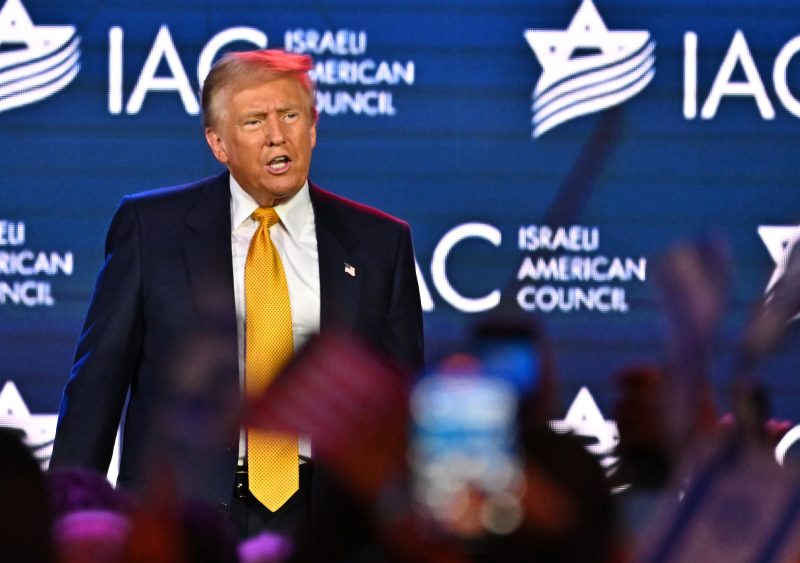The recent statement made by President Donald Trump regarding Jewish voters potentially influencing the outcome of the upcoming election has sparked controversy and raised important questions about the relationship between the Jewish community and the U.S. political landscape. Trump’s assertion that losing the election could be attributed to Jewish voters has caused a stir among many in the Jewish community and beyond. This article delves into the significance of Trump’s statement, explores the historical context of the Jewish vote in the United States, and discusses the implications of such comments on the upcoming election.
First and foremost, it is crucial to analyze the context in which President Trump made this statement. His assertion came during a speech to Jewish-American supporters, where he emphasized his pro-Israel policies and sought to appeal to Jewish voters. By singling out Jewish voters as potentially influential in his reelection bid, Trump may have been attempting to highlight the importance of the Jewish community in U.S. politics. However, his comments have been met with criticism and concern, with many viewing them as divisive and inappropriate.
The Jewish vote has been a significant factor in American politics for decades, with Jewish-Americans historically aligning more with the Democratic Party. While the Jewish community is not a monolithic voting bloc and holds diverse political views, issues such as Israel, social justice, and anti-Semitism often play a central role in shaping their political attitudes. Trump’s administration has taken a strong pro-Israel stance, including moving the U.S. embassy to Jerusalem and brokering peace agreements in the Middle East. While these policies may appeal to some Jewish voters, many others have expressed concerns about rising anti-Semitism and divisive rhetoric under his presidency.
Furthermore, Trump’s comments raise questions about the role of identity politics in the upcoming election. By singling out Jewish voters as potential influencers, Trump may be seeking to exploit identity-based divisions for political gain. This tactic could further polarize an already divided electorate and undermine efforts to build a more inclusive and unified society. It is essential for political leaders to appeal to voters based on shared values and policies rather than relying on divisive rhetoric that targets specific ethnic or religious groups.
As the election approaches, Jewish voters, like all Americans, will weigh a range of factors in making their decision at the ballot box. While issues such as Israel, anti-Semitism, and social justice will undoubtedly influence their choices, it is crucial for candidates to address the broader concerns of all voters and engage in respectful dialogue that unites rather than divides. President Trump’s statement regarding Jewish voters underscores the importance of fostering a more inclusive and respectful political discourse that values diversity and promotes unity.
In conclusion, President Trump’s recent comments regarding Jewish voters shed light on the complex intersection of identity, politics, and rhetoric in American society. By highlighting the potential influence of Jewish voters in the upcoming election, Trump has drawn attention to the diverse perspectives and concerns of the Jewish community. As the election unfolds, it is essential for political leaders to engage in meaningful dialogue that respects the diversity of all voters and promotes unity over division. Only through inclusive and respectful discourse can we build a more cohesive and equitable society for all Americans.
